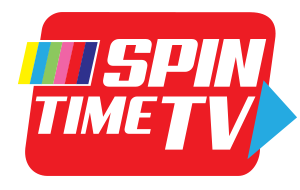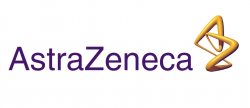Interview: Judy Lieff
Director, Deaf Jam
Deaf Jam screened at our Cinema Touching Disability Film Festival on Saturday, November 5, 2016.
How did you first learn about Aneta and ASL slam poetry movement? Did you have connections to slam poetry or the D/deaf community before the film?
While working as a visiting artist teaching video production to deaf high school students, I was introduced to the hidden practices of ASL poetry. Shortly thereafter, I was invited to attend a youth spoken word poetry slam, and it occurred to me that it would be fantastic to see deaf teens involved in this exploding movement. My research revealed that few, if any deaf teens, had ever been involved in the slam scene. Also, during my research, I met Liz Wolter, an ASL literature teacher at Lexington School for the Deaf who had been teaching single semester ASL poetry electives and video poetry projects with guest poets including poet guru, Bob Holman. Things just jettisoned from there, and I teamed up with City Lore, a non-profit organization dedicated to the preservation of America’s living cultural heritage, to produce the documentary and raise funds to assist Liz in extending her electives to a full year.
The fact that the ASL poets joined the spoken word poetry jam is quite an impressive form of outreach. How did the hearing and ASL poets respond to each other initially?
I think there was mutual respect and curiosity between the hearing and deaf poets.
Did they continue interacting after the poetry jam?
YES - for some of the poets.
Did their communication expand beyond poetry?
In some cases, but for the most part, the students that I worked with remained separated. Part of the reason it was hard for the Deaf and Hearing youth to stay connected was because, many of the parents of the deaf students were much more protective and did not allow them to travel freely unsupervised.
Has ASL slam poetry expanded beyond New York State? Did it go into other states or parts of the nation?
During the making of Deaf Jam, Robert (Bob) Arnold - a deaf writer, artist, and educator - was visiting the workshops. Inspired by the deaf poetry slams he observed in the Deaf Jam workshops, he began a series at the Bowery Poetry Club called ASL Slam. (Bob Arnold appears in Deaf Jam in the scene at Katz’s Deli where there is a discussion about survival of the culture.) Hosting and producing for the series was eventually handed to Douglas Ridloff who has since built ASLslam into a multi-city series. ASLSlam nites can be found in Denver, Boston, Chicago, D.C., and New York. Additionally, Bob Arnold has created ASL Cabaret in Los Angeles - a monthly series showcasing a variety of #deaftalent.
Your film points out some misconceptions that people with perfect hearing have about the D/deaf. Do the D/deaf have any misconceptions about hearing people?
Perhaps some Deaf have misconceptions about Hearies but I would refrain from making any generalizations about any constituencies.
As a hearing filmmaker, what have you learned about working with the D/deaf community that more hearing people should know?
I think it’s important to create your own authentic experiences among people of cultures different from your own in order to gain a greater understanding of people.
In general, I think it’s important to have an awareness of what accessibility means in our society.
Rikki Poytner is a deaf vlogger who has a great resource of videos she has created addressing best practices for connecting with the Deaf community. Here is one of them.
Do you think your film has helped bridge the gap between the hearing and D/deaf communities?
I hope that Deaf Jam inspires audiences and contributes to expanding social images of the Deaf community. I also hope that the film will inspire anyone interested in poetry and literature to explore ASL poetry.
We're featuring Deaf Jam at our cross-disability Film Festival, but many D/deaf people don't consider themselves disabled. Can you elaborate on this?
"Deafness doesn't have to be a disability. The knowledge, habits, and approaches to life used by members of the culturally Deaf community allow a person to live without needing to hear. Thus the ability or lack of ability to hear can be made to not matter."
I personally believe that the use of the word “disability” attaches a label with preconceived associations that marginalize people. It is my understanding that the Deaf community prefers to not be grouped under a label other than Deaf - with a capital D. It’s a culture and a language for people who don’t hear.
Deaf Jam has been screened all over the world. Have you found people in other countries react differently to it than American audiences?
This question is hard to answer in broad terms rather than a case by case basis. In some countries sign language is not standardized, and many deaf children have delayed language acquisition. Screening for students who are not fluent in sign or fully literate is challenging. In those kinds of situations, we would screen a short segment of the film and continue with sign language games. For the most part, the film has been well received in multiple languages. In places where Deaf are a stigmatized or segregated from most of society - the reaction of seeing a empowered Deaf students is incredibly impactful.
What are some your own favorite films?
In no specific order - and to name just a few: The Fantastic Mr. Fox, The Great Dictator, Amarcord, Some Like it Hot, Notorious, A Hard Days Night, Harold and Maude, Rashomon, Witness, One Flew Over the Cuckoo Nest, Salaam Bombay, Man on Wire, The Corporation, The Fog of War, Amy, Double Indemnity, Westside Story.

Do you have a current project you can tell us about?
I have three projects in various stages.
- Spintime.tv - an online community that explores election 2016 with video remix (@spintimetv) The collaborators for SpinTime are a combination of technologists, video artists, educators, and students interested in media literacy and journalism. We have been working on the creation of a free 6 week online course as a prototype for the next Presidential election cycle.
- Agree to Disagree is a documentary project in development about Urban debate.
- Deaf City is a hybrid project tangential to Deaf Jam.
< Last: Guest Blog: Cripping Up Robs Opportunities from Actors Who Need Them
Film Fest Newsletter
Sign up for our e-newsletter to stay up to date with the Cinema Touching Disability Film Festival & Short Film Competition.
Current issue: Thank you, William Greer!
Contact the Film Festival
Contact: Laura Perna
Phone: (512) 478-3366 ext. 305
Email: filmfest@txdisabilities.org












